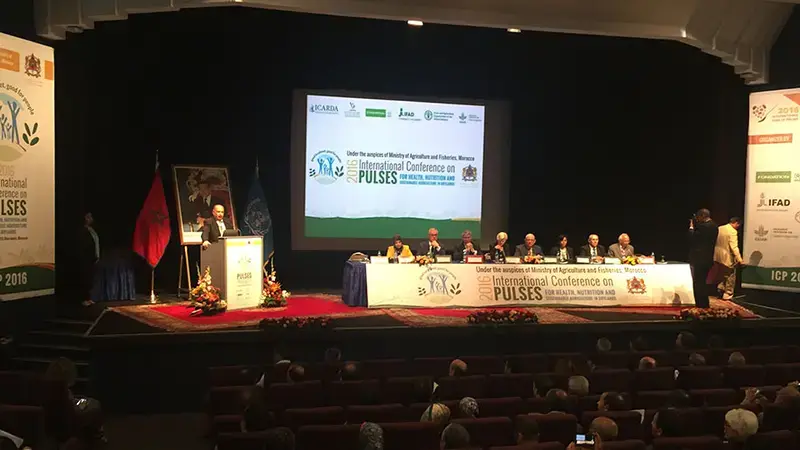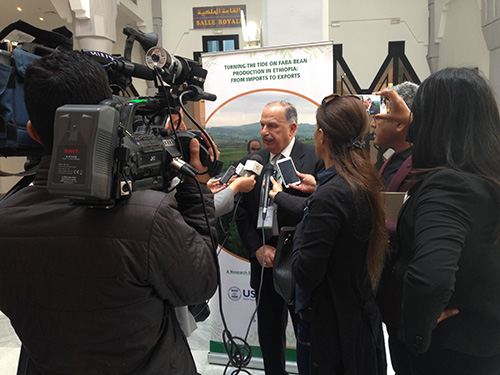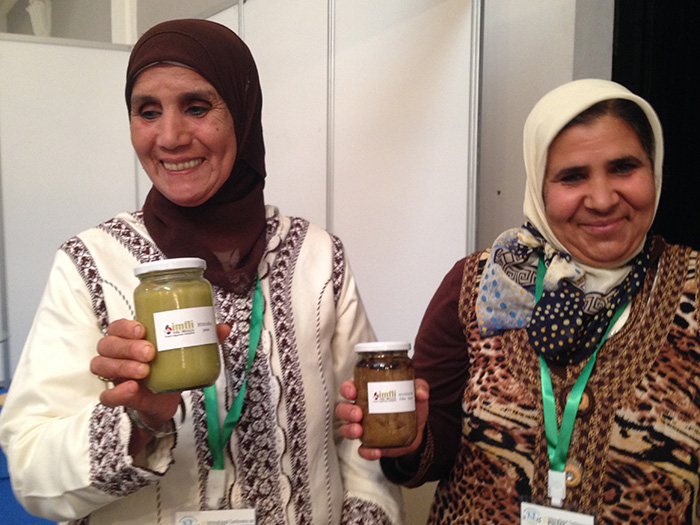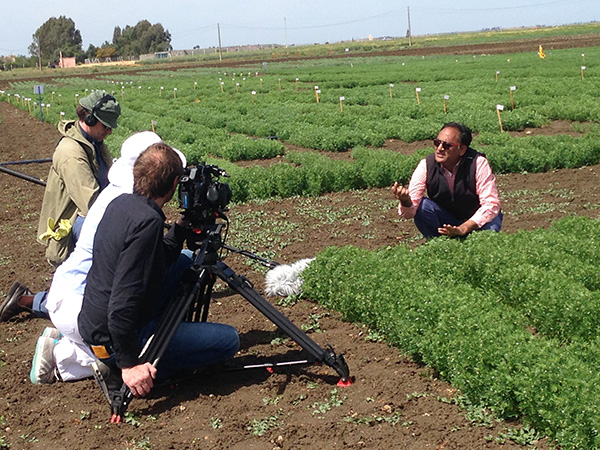Call for better policies at 2016 International Conference on Pulses

Pulses in rotation can produce more from less and contribute to fulfil the growing food demand with no additional appropriation of land and water for agriculture. This was the clear message that emerged from the 2016 International Conference on Pulses for Health, Nutrition and Sustainable Agriculture in Drylands, held in Marrakesh, Morocco, from 18-20 April, 2016.
“This conference provides an excellent platform for knowledge sharing and identifying innovative paths for research that will support small growers,” said Prof. Mohamed Saddiki, representing H.E. Mr. Aziz Akhennouch, Minister of Agriculture and Fisheries, Morocco. Organized by ICARDA in collaboration with the Institute National de la Recherche Agronomique (INRA), OCP Foundation, International Fund for Agricultural Development (IFAD), CGIAR Research Program on Grain Legumes (CRP GL) and Food and Agriculture Organization (FAO), under the auspices of the Ministry of Agriculture and Fisheries of the Kingdom of Morocco, the conference was part of the United Nation’s International Year of Pulses (IYP) events coordinated by FAO with the goal of enhancing public awareness on the nutritional benefits of pulses as part of sustainable food production and nutrition security.

Ms. Bouchra Ameur, Secretary General of OCP Foundation lauded the south-south cooperation in pulses research and the initiatives towards strengthening pulses value chains in 32 countries. Mr. Périn Saint Ange, Associate Vice President of IFAD, highlighted the need for sustainable intensification of pulses and reiterated IFAD’s commitment of financial investment for the benefit of smallholder farmers. “Pulses growing area has increased from 63 to 80 million hectares with research contributions from CGIAR centers like CIAT, ICARDA, ICRISAT and IITA,” acknowledged Ms. Margret Thalwitz, Chair of ICARDA’s Board of Trustees. She also emphasized the need to rethink our research approach. Ms. Shoba Sivasankar, Director of CRP GL, called for further agronomic and crop improvement research on pulses, the smart crop that is climate resilient and nutrient dense.

Around 350 participants coming from over 35 countries, alongside policy-makers, agriculture research organizations, scientists, farmers, private sector and donors, held high level discussions on enhancing policy frameworks that would enable targeted pulses research to result in producing more food with less inputs, leading to better soil health. Pulses, which are high in protein and an integral part of the diet of millions, will need enabling policies to meet the current and future food and nutritional security challenges as their consumption is estimated to increase by 23% in the next 15 years.
Dr. Rattan Lal from the Ohio State University, USA, highlighted the importance of pulses for soil health and environmental management for sustainable agricultural production systems. Various eminent scientists and policy makers analyzed global pulses production scenarios, consumption and trade. They also looked at the health, nutrition and gender related aspects. Deliberations were made on innovations in pulses genomics and breeding, productivity management, and biotic and abiotic stress management. There were thematic poster presentations as well. National partners from Bangladesh, Egypt, India, Morocco, Nepal, Sudan and Tunisia shared their county successes in pulses production, lessons learnt and gave an overview of the challenges that lie ahead. ICARDA’s pulses website has a repository of the conference presentations.

Concurrent side events were organized by FAO and the Moroccan Society of Agronomy and Horticulture. Conference participants visited ICARDA’s research station at Merchouch near Rabat that is host to a model crop improvement program.
The conference participants concluded that “through improved policies and investments in pulses research and technology transfer, the rising global gap between demand and supply of pulses could be bridged.” An urgent need for sustainable and reliable seed system was expressed for production, storage and dissemination. More skilled developers are needed for bridging the gap between research and development. There is also a need for scaling out technologies, monitoring progress, and evaluating impact.
